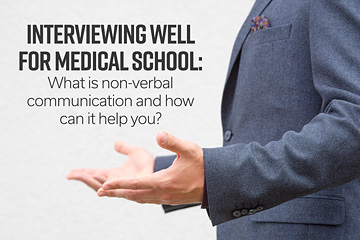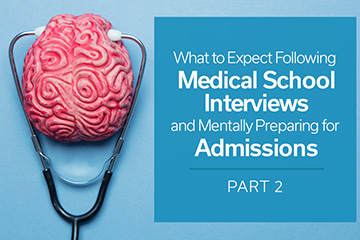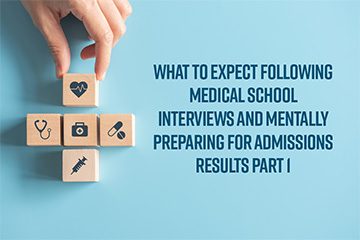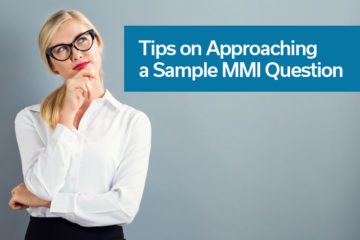
Interviewing Well for Medical School: What is non-verbal communication and how can it help you?
You nervously walk into your interview room, unsteadily close the door, and sit down in front of your interviewer, excited to start. In those 5 seconds, from door to chair, you’ve made an impression on everyone in that room before you’ve said a single word. How you conduct yourself is just as important as what you say to your interviewers.
By reading this article, you are already on your way to becoming a better future physician. Being able to notice and detect nonverbal behaviours in yourself, termed nonverbal sensitivity, has been linked to lowering distress in patients and appearing more compassionate [1].
Below are important tips to keep in mind while conducting yourself in an interview format:
1. The Entrance. During the MMI format especially, you may have as many as 10 opportunities to walk in and introduce yourself to your interviewers. Make them count. Open the door with confidence, acknowledging everyone in the room with eye contact as you enter and close the door behind you. Walk with purpose, tall and slowly, towards your interviewer, extending your hand to meet theirs. In these few seconds, your initial impression in made and research has shown that these are predictive of job offerings (or in your case, a medical school acceptance) [2].
2. Body Language. Proper seated posture is essential in maintaining a professional appearance. Sitting near the edge of your seat with your back straight and feet directly below your knees is a great way to appear composed. One trick to maintaining posture is that I like to imagine my body as if my spine was a string and someone were pull that string from the top of my head. This keeps your body aligned and in a comfortable yet collected seated posture. Evidence has shown that posture is indicative of your engagement, so make sure to show your interviewers that you want to be here [3].
3. Active Engagement. Interviewing is a two-way street; your interviewers are not just trying to get information from you but to also see how you communicate in a conversation. Interpersonal skills are extremely important in medicine so being able to engage with your interviewer is important as it can reflect how you would interact with patients. Active listening cues such as eye-contact, nodding and the occasional speech affirmation can go a long way. As well, when interviewers ask a difficult question, feel free to ask for a moment to contemplate it within your head. This can show a sense of maturity and can also strengthen your answers.
Most importantly, express who you are – talk about your interests, why you are passionate about medicine and who are you outside of medicine. I hope this article has been insightful into demonstrating the importance of non-verbal communication in the interview process and best of luck in your pursuits of medicine into the future!
1. Hall, J.A., Roter, D.L., Blanch, D.C. and Frankel, R.M. (2009). Nonverbal Sensitivity in Medical Students: Implications for Clinical Interactions. Journal of General Internal Medicine, 24(1217).
2. Barrick, M.R., Swider, B.W. & Stewart, G.L. (2010). Initial evaluations in the interview: Relationships with subsequent interviewer evaluations and employment offers. Journal of Applied Psychology, 95(6), 1163-1172.
3. D’Mello, S., Chipman, P. & Graesser, A. (2007). Posture as a Predictor of Learner’s Affective Engagement. Proceedings of the Annual Meeting of the Cognitive Science Society, 29(29), 905-910.






